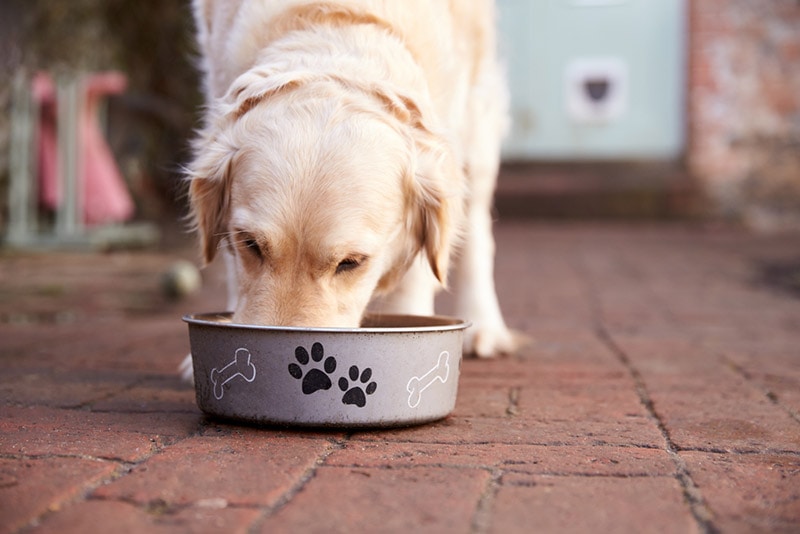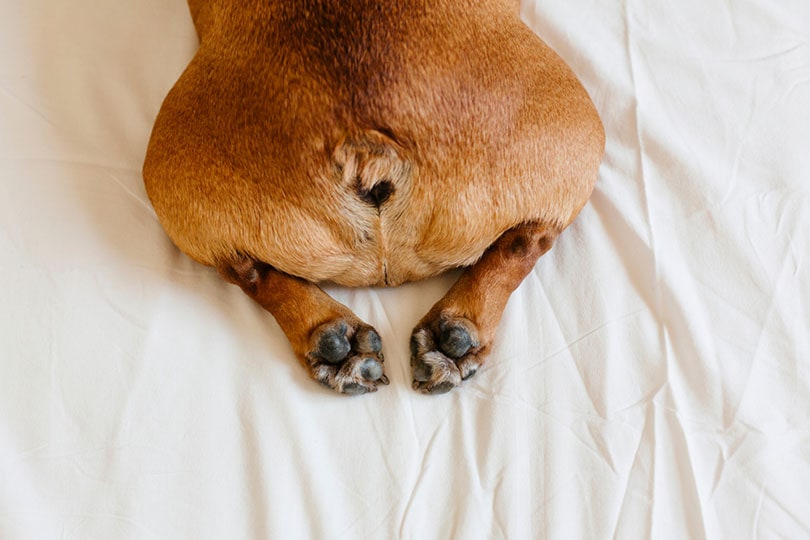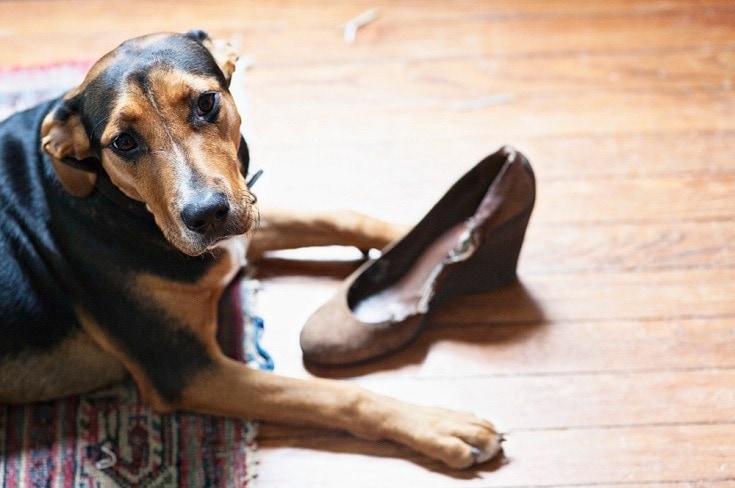Why Does My Dog’s Breath Smell Like Fish? 3 Vet-Approved Reasons & What to Do
By Ed Malaker
Updated on

As pet owners, we experience our pets engaging in some pretty strange behavior. In some cases, we’ll wish we could get it on film, and other times, it can leave us confused or even angry. Strange behavior can also be a sign that something is wrong with your pet, especially if it involves a strange smell. So, it’s not unusual to start asking questions if your dog’s breath suddenly starts to smell like fish. If this has happened to you, keep reading while we look at the reasons that might be behind your dog smelling like fish as well as what you can do about it.
The 3 Reasons Dog’s Breath Smells Like Fish
1. It’s in the Food
Your dog’s breath might smell like fish because your pet food contains fish among the ingredients. Fish oil is an increasingly popular and healthy ingredient in pet food. Each year, more companies add it to their recipes to provide them with an extra source of omega-3 fatty acids. Even if you feed your dog chicken or turkey dinners, there may be fish oil in the food that’s causing your dog’s breath to stink. Look over the ingredients of the food you provide, including the treats to look for fish oil or omega-3 fatty acids. This applies to both wet and dry dog food.

What Can I Do About My Dog’s Breath
Since your dog’s fishy breath is normal considering your dog’s diet, you should not be worried at all. If you can’t stand the smell, you can try to switch brands to find one that masks the fish smell better. However, omega fats are extremely helpful, so you should try to find a way to keep them in your pet’s diet. They can help your dog maintain a shiny coat and help reduce inflammation, among many other things.
2. It Could Be Halitosis
If plaque and tartar build up on your dog’s teeth, it can lead to bad breath or halitosis. The odor can resemble the smell of fish without your pet eating any.
What Can I Do About Halitosis?
If you think halitosis is the reason behind your dog’s fishy smell, the best thing you can do is contact your veterinarian. Halitosis is a common sign of dental disease, which affects a high proportion of pets. Some experts suggest that more than 80% of dogs over 3 years old are affected. After visiting your vet, they will probably recommend that you start brushing your dog’s teeth daily. Depending on the severity of the dental disease, your vet may recommend medical treatment, a professional cleaning, and/or a dietary change toward feeding your dog a dental diet.
3. Impacted Anal Glands
Nobody wants to say it, but if you have a dog, especially a small or overweight one, you will have to get used to it. Impacted anal glands can be a common problem for many dogs at some point in their lives. One of the most frequent signs is scooting across the floor and dragging their butt. Another is the unmistakable fishy smell that impacted anal glands produce, and we all know that dogs like to lick their butt, and now you know why their breath also smells like fish.
Anal glands are two small sacs located around the anus that produce a particular secretion that is released when dogs defecate. This secretion provides important information to other dogs as a form of communication. These glands also explain why dogs are so keen on sniffing each other’s butts when they meet. It’s the best way to get acquainted with each other’s scent.
If the anal sacs become clogged, your dog cannot squeeze the secretion onto the feces, and it continues to build up in the sacs, which can become a real problem for your pet. When you see them scooting across the floor, they are trying to relieve the itchiness or the discomfort that the impacted glands cause. As the sacs continue to fill, they can become infected and create a painful abscess that sometimes ends up bursting.

What Can I Do About It?
If you believe your pet is suffering from impacted anal glands, we recommend taking your dog to the vet immediately. The vet can express the glands to empty them and even show you how to save on medical costs. The vet will also look for the more serious cause of the impacted glands, like tumors. Overweight dogs have a difficult time completely emptying the sacs because of the extra fat they have around the area, so maintaining proper weight can help to reduce the frequency of impacted anal glands.
Summary
Unfortunately, if the fish smell is strong and seems to come from the entire dog, including their breath, there is a good chance the cause is dental disease or impacted anal glands. If you see your dog doing the scoot, it will be time to visit the vet. If the fish smell is only something you’ve been noticing when they kiss your face, we recommend checking the ingredients in the food for fish oils. If you still can’t explain the smell, schedule a dental check up with your vet to ensure there isn’t some infection in the mouth.
We hope you have enjoyed reading over this guide and found the answers you needed. If we have helped your dog smell better, please share this guide to why your dog might smell like fish on Facebook and Twitter.
You Might Be Interested In:
- How To Get Rid of Fishy Smell From a Dog: 7 Vet-Approved Expert Tips
- My Dog’s Breath Smells Metallic, Should I Worry? Vet-Approved Facts
Featured Image Credit: san4ezz, Shutterstock













